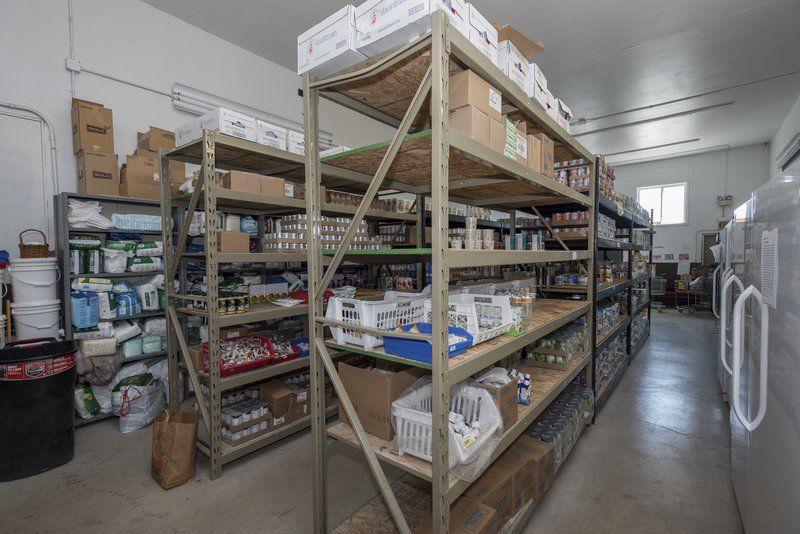Tyson Foods has a long history of giving back through an extensive network of regional and national food banks, making protein available to many across the nation. But we recently found that more rural communities were often outside the reach of these networks. The smaller pantries serving these communities may also lack capacity to receive, store, or distribute large shipments of protein, limiting their reach and distribution efforts.
Our Community Pantry Program (CPP) helps increase access to those outside larger food bank networks, reaching these smaller communities. The program, which began in 2019, provides grants to help pantries tackle the logistical issues of hunger, allowing them to add items like walk-in freezers, extra storage, and equipment for receiving donations – all necessary for housing and distributing large quantities of food and protein.
“It was important to Tyson that our hunger relief efforts were being targeted in our rural communities – areas that are often overlooked,” said Jordan Gerson, employee engagement coordinator for Corporate Social Responsibility (CSR). “Hunger is a logistics issue which is why we began investing in capacity grants to buy freezers for feeding agencies, ensuring that large amounts of quality protein were being delivered to the communities where we live and work.”
Through these capacity expansions and Tyson Foods donations, pantries in the program received an additional 1.9 million pounds of food during 2019 and 2020 – all benefitting previously underserved communities and equaling over 44 million meals. Nearly 25 million meals have already been donated this year.
“What Tyson means to our community is much more than the meal that’s set before us,” Christy Baker, Executive Director of RSVP of Enid, a nonprofit serving communities in northern Oklahoma. “It means you care enough to make sure food reaches hungry mouths. Tyson has changed the scope of their lives, one meal at a time.”
RSVP of Enid is one of the newest pantries to join the program and received 40,000 pounds of food from Tyson earlier this month. That donation fed over 5,000 families across eight counties, Baker said, totaling over 134,000 meals.
“Food insecurity is prevalent in the small towns of Oklahoma,” Baker said. “People are uncertain of their future, anxious about the ‘what ifs,’ but this donation made them certain they could at least feed their families.”
The value of the program goes far beyond providing access to food. These pantries are now able to serve as distribution centers for other surrounding rural feeding programs, creating partnerships across communities and organizations. Increased capacity also means increased volunteer opportunities for team members in Tyson’s matched-giving program and reduces our environmental footprint.
The program continues to expand. Four new pantries have already joined the program this year, bringing the total to 31, with an additional six to eight expected before the year ends. The evaluation of potential pantries includes community need, support from a local Tyson Foods plant, and geographic location.
“As one of the leading protein producers in the world, providing quality protein to our neighbors is our duty,” Gershon said. “Bridging these gaps and solving logistics issues will help provide a basic human right to those in need and continue proving Tyson’s commitment to raising the worlds expectations for how much good food can do.”
Hunger exists in every state, city and community in our country, and we are committed to supporting and helping those communities affected by food insecurity. Learn more about our community support initiatives and hunger relief efforts here.





